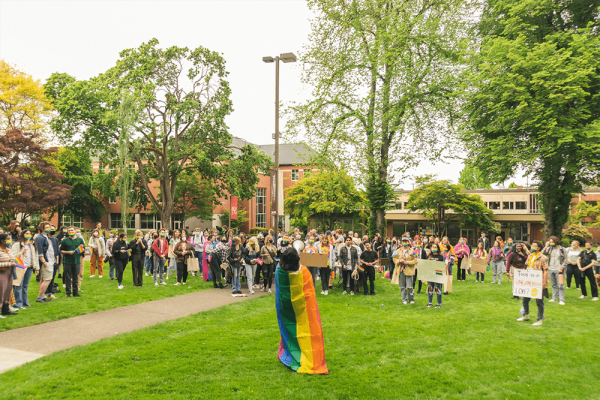Jul 21, 2022
Over the last year, the majority of Seattle Pacific University’s community has been unwavering in its affirmation of LGBTQ equality on campus ... Nevertheless, on July 1, the evangelical university’s board of trustees affirmed — for a third time in about a year — that the school would not change its employee policy.
Read the Full Article

Already a subscriber? Login
